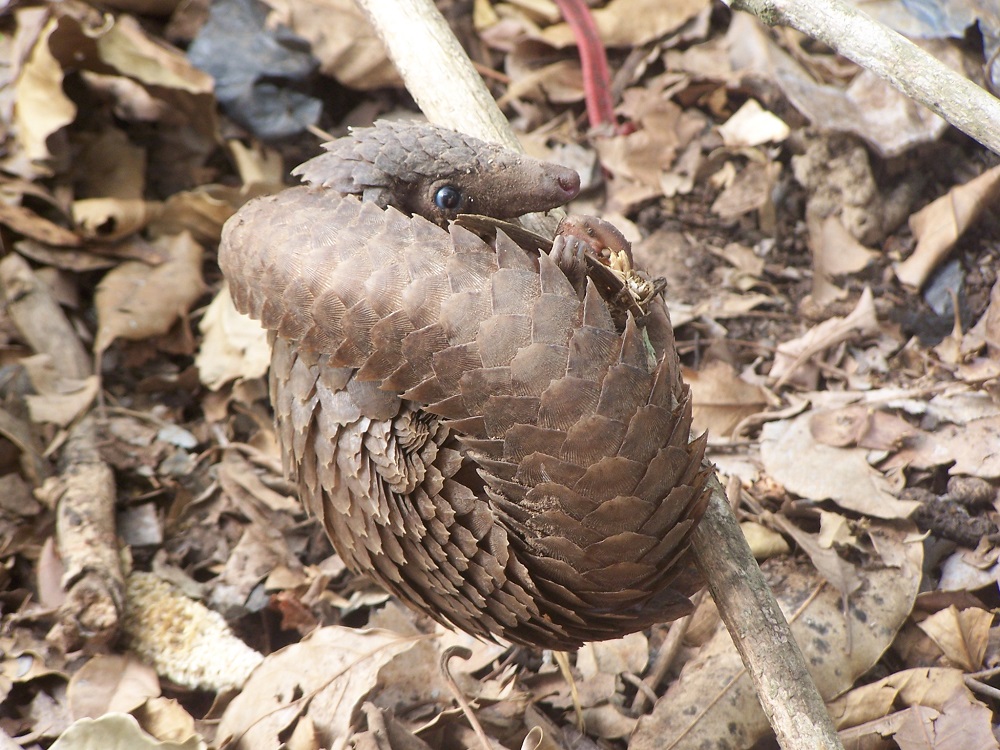About a week ago, the world’s first ever Pangolin Range States meeting took place in Da Nang, Vietnam, reflecting the growing conservation concern for pangolins globally. In response to the need for concerted conservation action, the IUCN SSC PangolinSG is pleased to report the announcement of a two-year international Pangolin Conservation Initiative taking place in Cameroon, Thailand and China, as a result of the partnership between Foundation Segré and SOS (Save Our Species).
The project will work to protect four species of Pangolin. This includes the Giant Pangolin Smutsia gigantea, the White-bellied Pangolin Phataginus tricuspis and the Black-bellied Pangolin Phataginus tetradactyla – all of which are categorised as Vulnerable on the IUCN Red List. The fourth species is the Critically Endangered Sunda Pangolin Manis javanica.
Project activities will focus on tackling direct threats to pangolins at priority sites in Africa and Asia, and on initiating research into reducing demand for pangolin products in

The Criticially Endangered Sunda pangolin (Manis javanica), one of the species to benefit from this new project.
China, the primary market for the species and their derivatives.
To date there have been very few targeted conservation initiatives in place for pangolins according to Dan Challender, Co-Chair of the IUCN SSC Pangolin Specialist Group (PangolinSG) and who presented on the global conservation status and trade in pangolins at the Da Nang workshop and is a technical advisor to the SOS project. “Reducing demand for pangolins in East Asian markets is imperative to securing their future,” he adds.
All eight species of pangolin have been included in Appendix II of CITES since 1975, restricting trade. But populations are increasingly under pressure from illegal hunting and poaching for illicit international trade. Demand for their meat, which is considered a delicacy in East Asia, and their scales, which are used in traditional Asian medicines is beyond unsustainable.
The PangolinSG estimated that one million pangolins have been traded illegally in the last 10 years, contributing to population declines of up to 90% in the Asian species and a subsequent increase in inter-continental trade in pangolin parts from African countries to Asian markets.
This project, implemented by IUCN Member Zoological Society of London (ZSL) under the leadership of Prof. Jonathan E. M. Baillie, Conservation Programmes Director at ZSL and Co-Chair of the IUCN SSC PangolinSG and Carly Waterman, EDGE Programme Manager at ZSL and Red List Authority Coordinator for the PangolinSG, will effect key conservation recommendations articulated in the recently published action plan ‘Scaling up pangolin conservation’.
This first ever document of its kind sets out the priorities for the next 10 years and was a key tool used at the recent Da Nang meeting to help generate effective recommendations for coordinated pangolin conservation efforts.
Because it is directly aligned to this ten year plan, the SOS Pangolin Conservation Initiative in collaboration with Foundation Segré represents an exciting development joining up the dots across international borders to help build a coordinated frontline effort against pangolin extinction.



